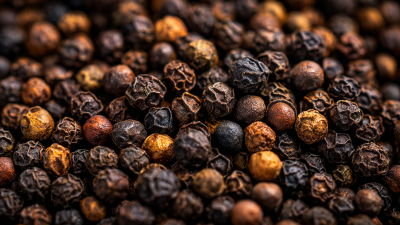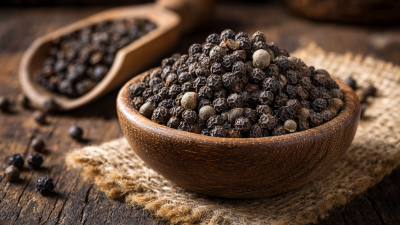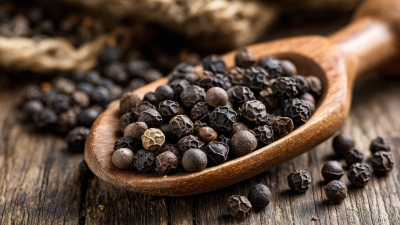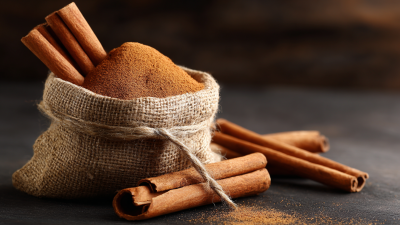Black pepper, often referred to as the "king of spices", is more than just a common seasoning; it boasts a multitude of flavor profiles and numerous health benefits that are increasingly supported by scientific research. According to a report by Research and Markets, the global black pepper market is projected to reach USD 3.85 billion by 2027, reflecting its significance in culinary and medicinal applications. Studies have shown that the active compound piperine in black pepper enhances nutrient absorption and offers antioxidant properties, which may contribute to improved digestive health, better weight management, and heightened bioavailability of other nutrients. This guide delves into the essence of the "Best Black Pepper", exploring its varieties, flavor nuances, and the science-backed health benefits that make it a staple in kitchens and pantries worldwide.
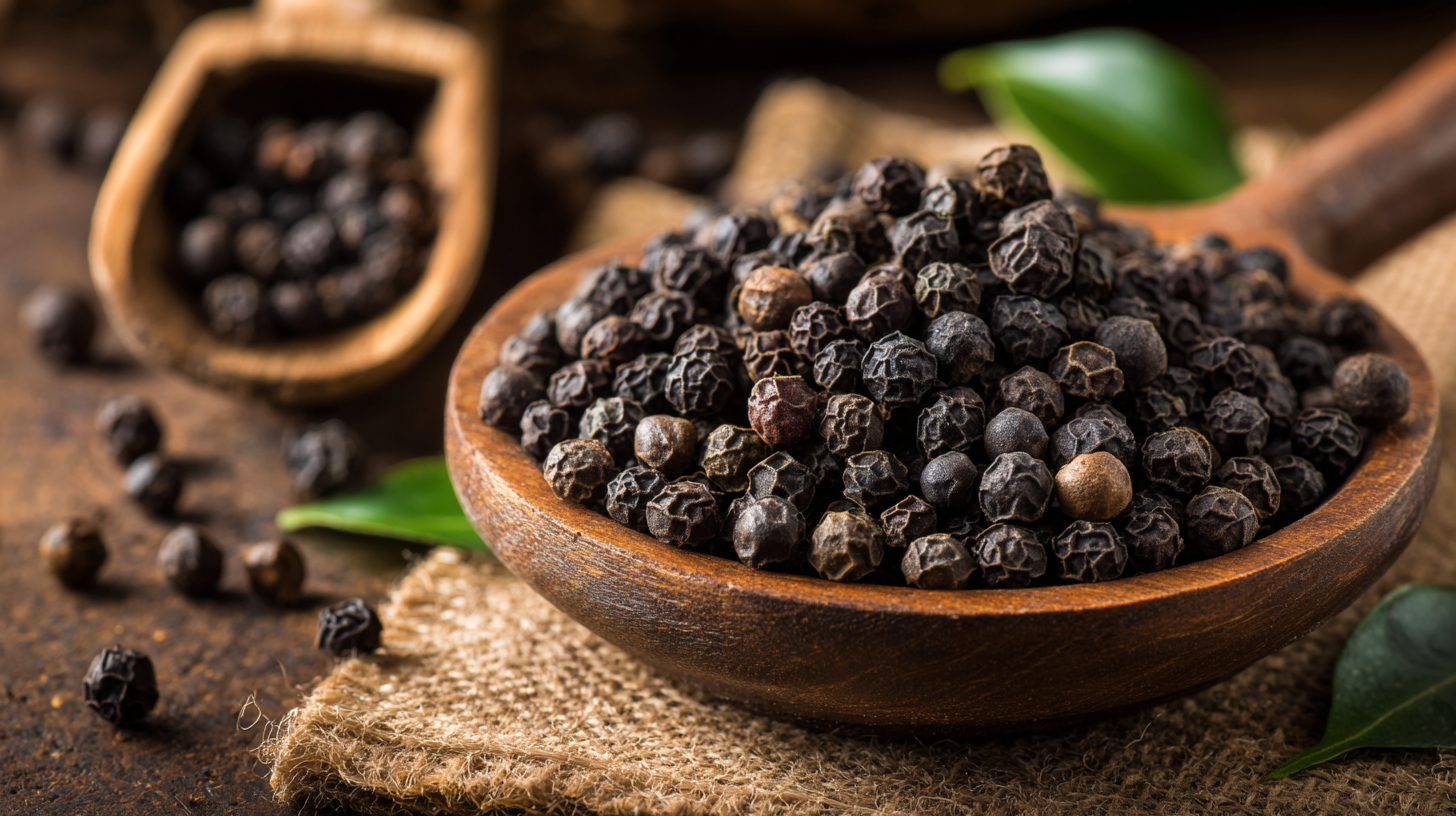
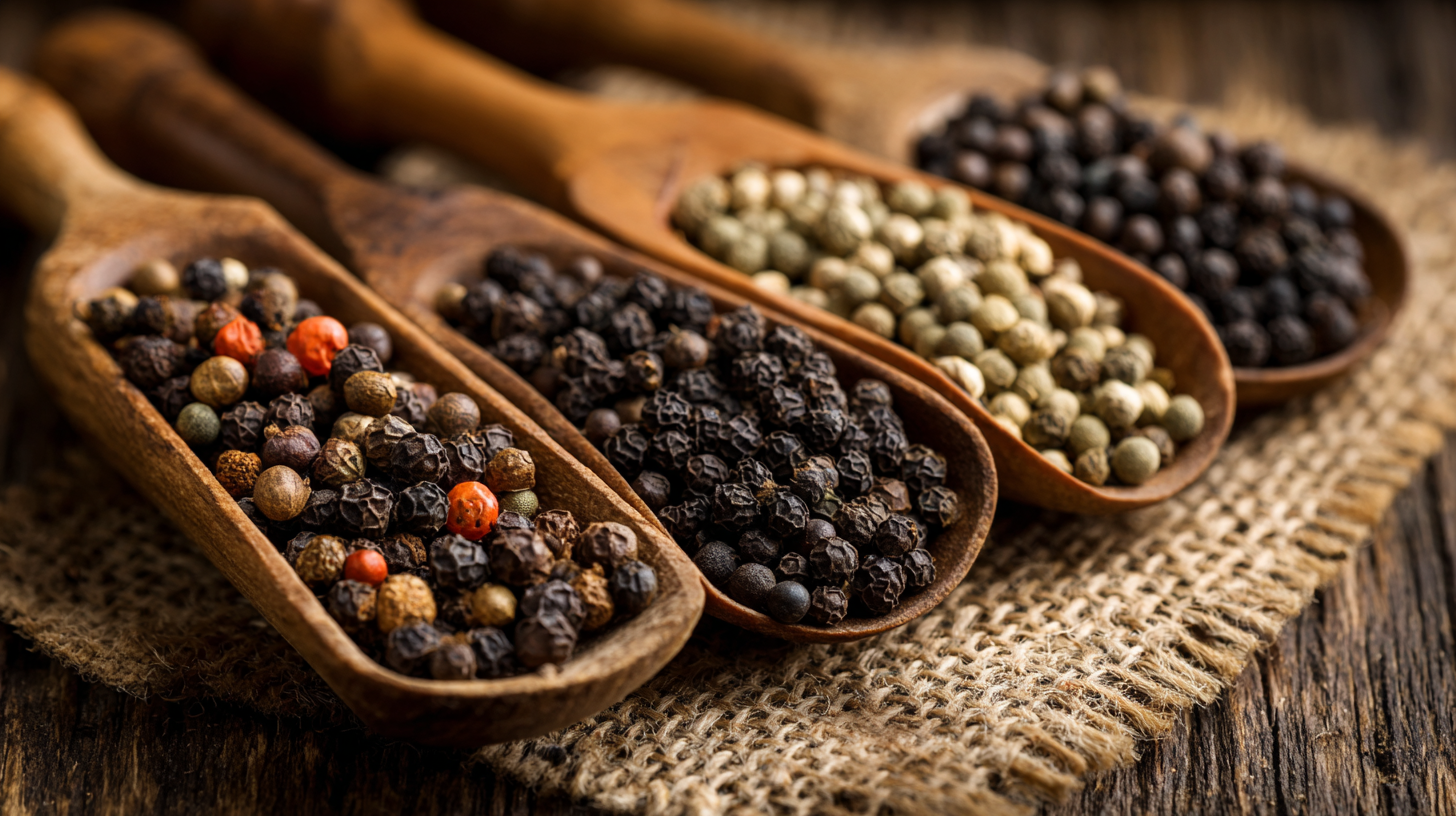 Black pepper, known scientifically as Piper nigrum, is among the most widely used spices in the world. Its various types can significantly influence culinary experiences and health benefits. The primary varieties include Malabar, Tellicherry, Lampong, and Sarawak. According to the International Pepper Community, Tellicherry pepper is particularly prized for its complex aroma and flavor profiles, often ranked as the highest quality among black pepper varieties. This version is harvested later than Malabar pepper, allowing the berries to mature, which enhances their pungency and aromatic qualities.
Black pepper, known scientifically as Piper nigrum, is among the most widely used spices in the world. Its various types can significantly influence culinary experiences and health benefits. The primary varieties include Malabar, Tellicherry, Lampong, and Sarawak. According to the International Pepper Community, Tellicherry pepper is particularly prized for its complex aroma and flavor profiles, often ranked as the highest quality among black pepper varieties. This version is harvested later than Malabar pepper, allowing the berries to mature, which enhances their pungency and aromatic qualities.
The health benefits of black pepper are supported by numerous scientific studies. Research published in the Journal of Medicinal Food reveals that piperine, a key compound found in black pepper, enhances the bioavailability of certain nutrients, such as curcumin from turmeric, by up to 2000%. Furthermore, another study in the Journal of Agricultural and Food Chemistry indicates that black pepper possesses antioxidant and anti-inflammatory properties, which can contribute to overall health. With its diverse varieties and scientifically backed health benefits, black pepper remains an indispensable spice in both kitchens and wellness routines worldwide.
Black pepper, known scientifically as Piper nigrum, boasts a complex flavor profile that is largely attributed to its volatile compounds, such as piperine and various terpenes. Recent analyses in the domain of flavor science indicate that the unique taste of black pepper is comparable to findings in studies of other aromatic substances. For instance, research on Congou black tea highlighted the significant impacts that fermentation can have on flavor characteristics, suggesting that similar processes apply to black pepper where fermentation and processing can enhance its flavor complexity. The interaction of sweet aroma and astringency within tea not only underscores the importance of volatile compounds but also parallels the multifaceted flavor experience provided by black pepper.
Furthermore, the integration of sensomics and metabolomics has facilitated deeper insights into the flavor dynamics of food products, including black pepper. Recent developments in this area reveal that the modulation of flavor during production, akin to that observed in golden pompano fermentation, reveals the intricate interplay of key flavor compounds. For example, advanced flavor analysis techniques have helped identify specific aromatic profiles that could potentially enhance the culinary applications of black pepper, allowing chefs and home cooks to unlock optimal flavor combinations that incorporate this piquant spice more effectively. This evolving understanding of flavor characteristics emphasizes the scientific underpinnings that afford black pepper its esteemed status in gastronomy and nutrition.
This bar chart illustrates the concentration of key flavor compounds found in black pepper, showcasing the unique elements that contribute to its distinct flavor profile. Notably, piperine is the most abundant compound, followed by various volatile oils that enhance its aromatic characteristics.
Black pepper, often dubbed the "King of Spices," is not only a culinary staple but also a powerhouse of health benefits. Recent studies have shown that piperine, the active compound in black pepper, can significantly enhance nutrient absorption. According to a report published in the *Journal of Nutritional Biochemistry*, piperine can increase the bioavailability of curcumin from turmeric by 2000%, making it an excellent addition to meals for maximizing health benefits.
Incorporating black pepper into your diet can do more than just elevate your dishes; it may also aid in digestion and bolster your immune system. Research by the *American Journal of Clinical Nutrition* indicates that black pepper can stimulate the production of digestive enzymes, thus improving gut health. The antimicrobial properties of black pepper also help in fighting off various infections, which could contribute to better overall wellness.
**Tips**: To harness the full potential of black pepper, consider adding freshly ground pepper onto your meals just before serving, as heat can diminish its beneficial compounds. Pair it with turmeric for an anti-inflammatory kick or integrate it into smoothies for an unexpected flavor boost. Experiment with incorporating black pepper into dressings or marinades, enhancing both taste and health benefits!
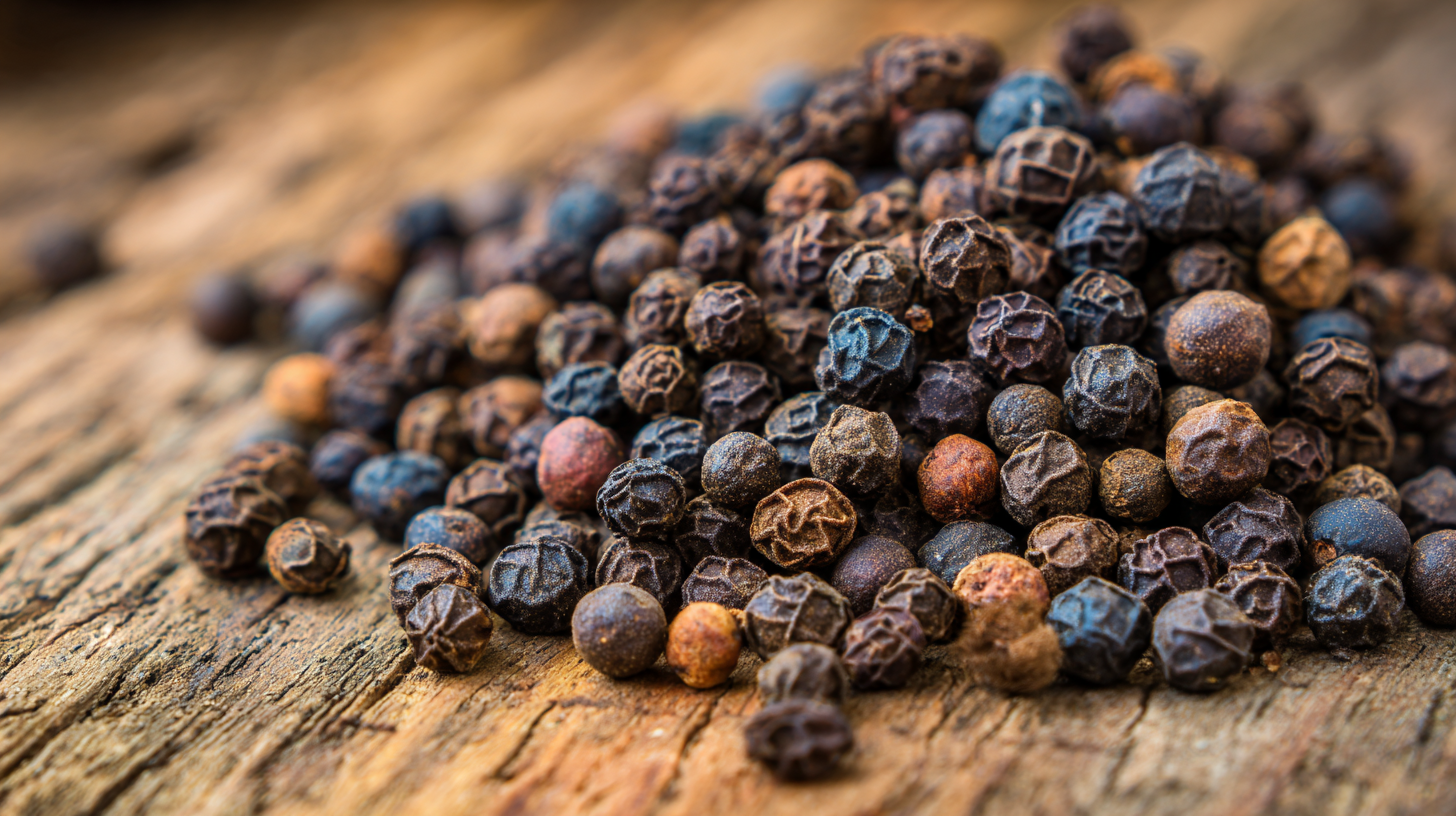
When selecting black pepper, freshness is key to unlocking its full flavor and health benefits. Look for whole peppercorns rather than pre-ground versions, as grinding just before use maximizes flavor retention. Check the packaging for harvest date, aiming for the most recent one available to ensure potency. Consider buying from reputable sources known for quality spices, which often carry a seal of authenticity.
**Tips for Storing Black Pepper**: To maintain the freshness of your black pepper, store it in an airtight container in a cool, dark place. Avoid exposing it to moisture and sunlight, as these factors can diminish its flavor and aroma. A spice drawer away from the stove is typically ideal for storage, helping you to preserve the essential oils that provide black pepper's distinct taste.
Interestingly, the disparity in flavor between foreign and local dairy products can reflect similar principles in spice selection and storage. Just as consumers might find that international milk varies in taste due to regional production practices, black pepper’s flavor profile can also be impacted by freshness and proper storage. By understanding these factors, you can enjoy a more vibrant and healthful culinary experience.
| Type of Black Pepper | Flavor Profile | Health Benefits | Best Use | Storage Tips |
|---|---|---|---|---|
| Malabar Black Pepper | Complex, spicy and aromatic with a hint of citrus | Rich in antioxidants, may improve digestion | Perfect for seasoning meats and in marinades | Store in a cool, dark place in an airtight container |
| Tellicherry Black Pepper | Larger berries with a bold, rich flavor | May support heart health, has anti-inflammatory properties | Great for gourmet dishes and finishing salts | Keep away from moisture and light for longer freshness |
| Lampong Black Pepper | Strong, pungent flavor with a slight earthy taste | May help regulate blood sugar levels | Ideal for Indonesian and Asian-inspired dishes | Store in a sealed glass jar for best preservation |
| Kampot Black Pepper | Sweet and floral with a nuanced flavor | Contains piperine, good for cognitive performance | Wonderful in salads, seafood, and light dishes | Store in a cool, dry area away from direct sunlight |
Black pepper, often referred to as the "king of spices," not only enhances the flavor of dishes but also offers numerous health benefits. To maximize its culinary potential, it’s essential to understand the best practices for incorporating black pepper into various recipes. One effective technique is to freshly grind whole peppercorns just before use; this preserves their essential oils and delivers a more robust flavor compared to pre-ground versions. Experimenting with different levels of coarseness can also help achieve the desired balance in a dish, allowing for a subtle warmth or a more pronounced kick.
Incorporating black pepper into cooking is an art that goes beyond simply seasoning. It can be used to elevate both savory and sweet dishes. For example, adding a pinch of black pepper to fruit salads or desserts can highlight the natural sweetness and create an unexpected yet delightful contrast. Additionally, when using pepper in marinades or dressings, let it sit for a while to allow its flavors to meld with other ingredients, intensifying the overall taste. By exploring these tips and techniques, cooks can truly unlock the full potential of black pepper, enhancing their culinary creations while reaping its health benefits.
